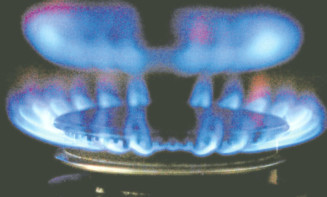
Councils are set to spark a power battle with the Big Six energy providers by selling electricity to the public themselves.
Local authorities want to relinquish the giants’ grip on the power market and are promising savings of at least £100.
The plan has been branded a bright idea by campaigners who say hard-pressed bill-payers are fed up with paying through the nose for electricity.
The proposed scheme known as Our Power would see new suppliers selling electricity away from the household names. However, in time that would change to allow councils to generate their own power through renewable sources such as wind and solar, sending the cost of home energy bills crashing down.
The move comes just a week after The Sunday Post revealed that energy bills provided by the Big Six have soared 170% in the last decade.
Dawn Muspratt, leader of Our Power, said: “Social housing providers and local authorities are looking at energy and see real opportunities to do things differently.
“For Our Power, this is all about impacting on fuel poverty, particularly for those most disadvantaged in the energy market.”
The group is a consortium of eight Scottish housing associations and a renewable energy charity.
After much discussion, they are now believed to be close to signing a financing deal which would allow it to supply power to thousands of households across Scotland.
They are thought to be well advanced in the process of securing an Ofgem licence to operate, with plans to launch next year. Together, they are in discussions with a further 27 social housing landlords.
It was reported last month that independent energy supplier Ovo had signed a deal with Plymouth Council to allow the city to become the first in the UK to provide its residents with energy. The firm believes as many as one million British customers could benefit from similar agreements in the near future, with as many as 500 partnerships aiming to be formed by 2020.
Ms Muspratt said: “We would buy the energy on the wholesale market in the first instance, but we would also want to build up a renewable energy base so we could generate energy of our own. Long-term, we would want to be investing in solar, hydro and wind at scale.”
The Big Six claim they make a 5% profit on all energy supplied, but experts dispute that, adamant the true mark-up is significantly higher.
Our probe last week revealed that the average fuel bills for retired households now sits at more than £1,100 a year a £700 increase since 2004.
In that time, bills have risen more than four times the rate of inflation.
Our findings showed fuel poverty had led to the deaths of 9,000 Scots pensioners in that same decade.
Norman Kerr, of Energy Action Scotland, blasted: “If we want to stop these frightening statistics, we need to treat it as a public health issue.”

Enjoy the convenience of having The Sunday Post delivered as a digital ePaper straight to your smartphone, tablet or computer.
Subscribe for only £5.49 a month and enjoy all the benefits of the printed paper as a digital replica.
Subscribe